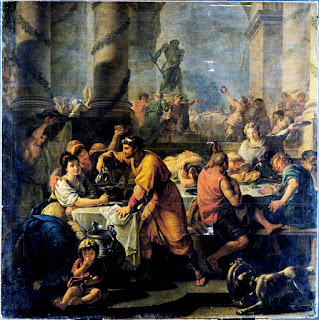stare decisis: the phrase “to stand by things decided,” the doctrine of affording preference to precedent is post-Classical Legal Latin
day at the beach: Ludwig Favre immerses himself at Brooklyn’s Coney Island—via Nag on the Lake
 kunst und keksdose: the art vintage German biscuit tins
kunst und keksdose: the art vintage German biscuit tins tubeway army: Are ‘Friends’ Electric? by Gary Numan climbs to the top of the charts on this day in 1979
merrily, merrily, merrily: distinguishing dreams from waking
full-stop: Gertrude Stein and others on punctuation
hallux: Latin’s lack of distinction for fingers and toes—see also here and here


































